Understanding suffixes Reading Worksheets for Ages 3-9
6 filtered results
-
From - To
Unlock the magic of words with our "Understanding Suffixes" reading worksheets, designed for children ages 3-9. These engaging worksheets from Kids Academy help young readers grasp the concept of suffixes, enhancing their vocabulary and reading comprehension. Tailored to fit different learning styles, each activity encourages children to explore the power of word endings in a fun and interactive way. Watch as your child builds confidence and foundational language skills, setting the stage for future academic success. Ideal for at-home practice or classroom enrichment, start your child's learning journey today with our expertly crafted worksheets!
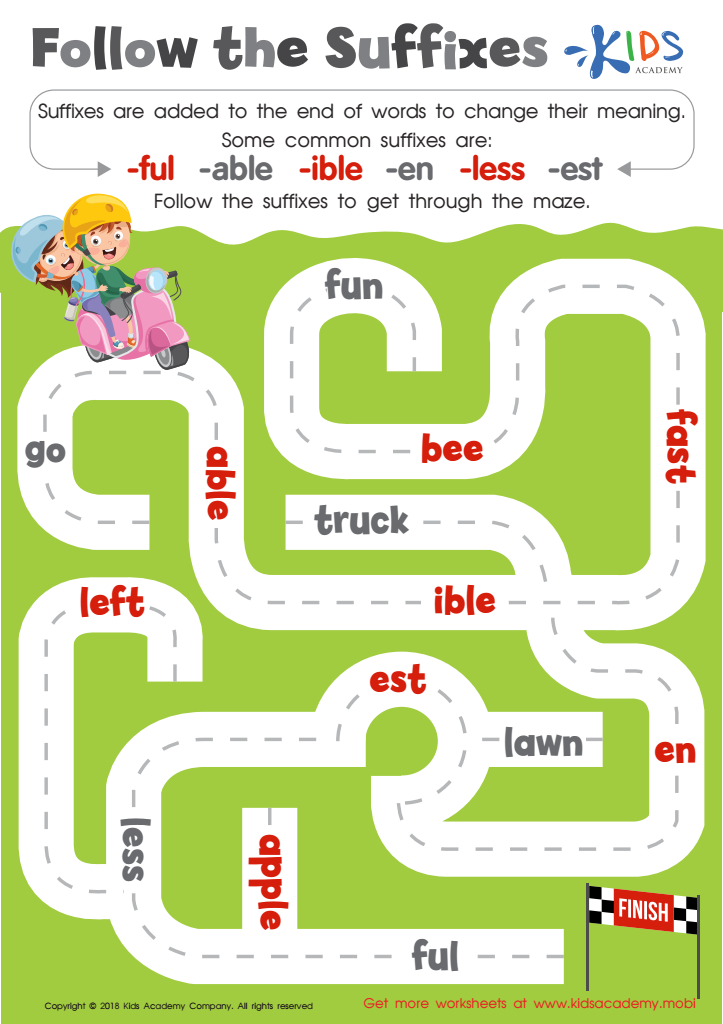

Reading: Follow the Suffixes Worksheet
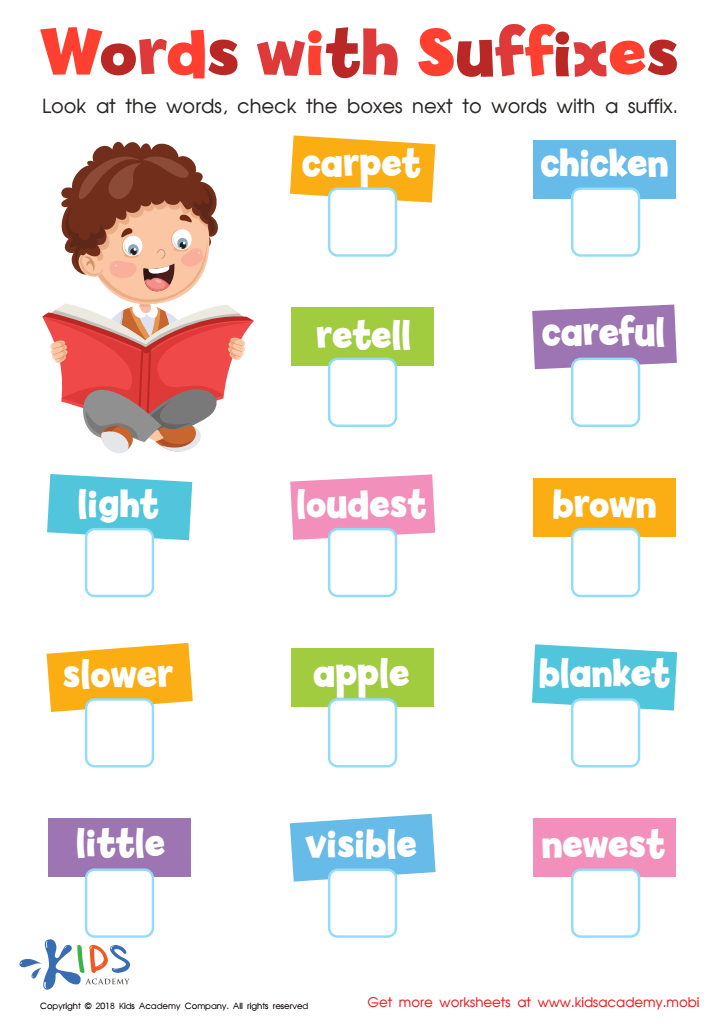

Reading: Words With Suffixes Worksheet
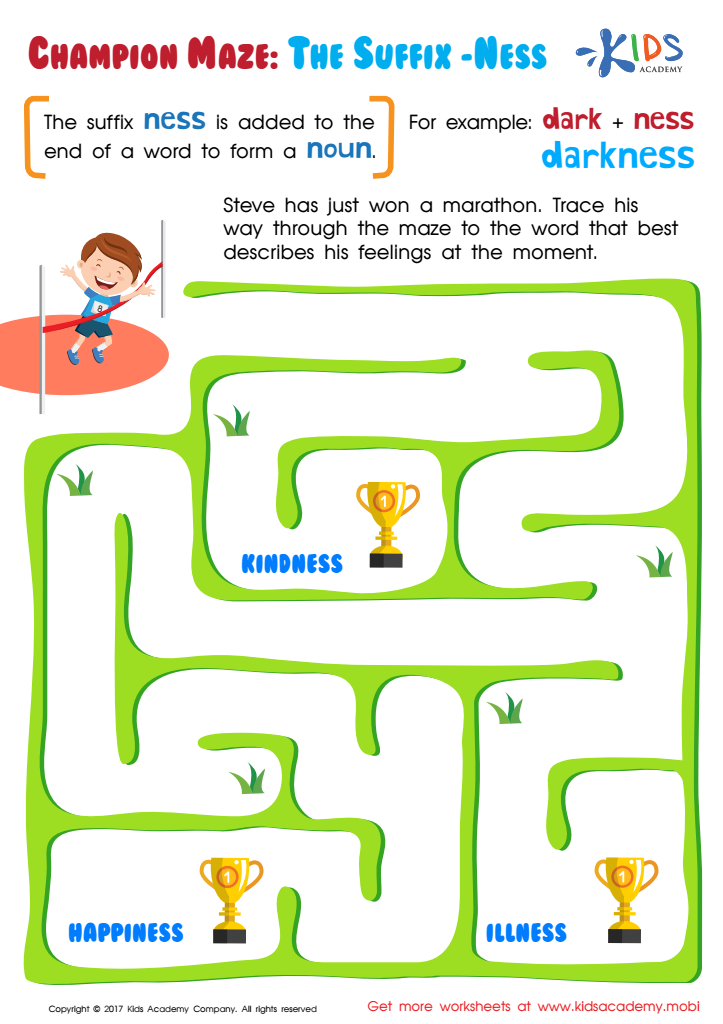

Suffix Ness Worksheet
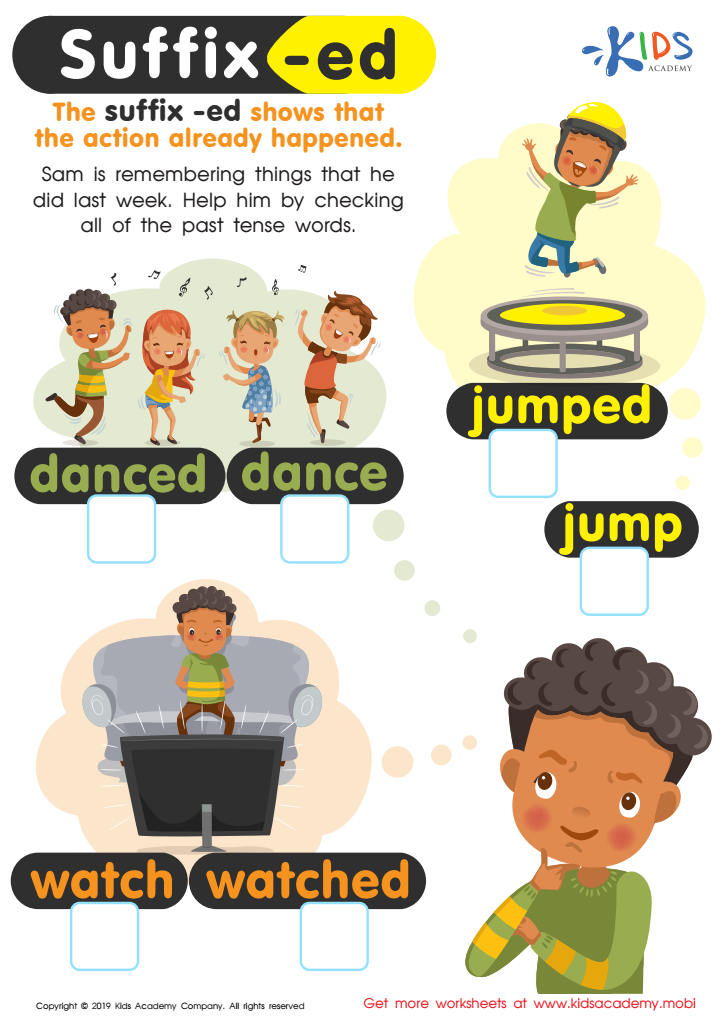

Suffix-ed Worksheet
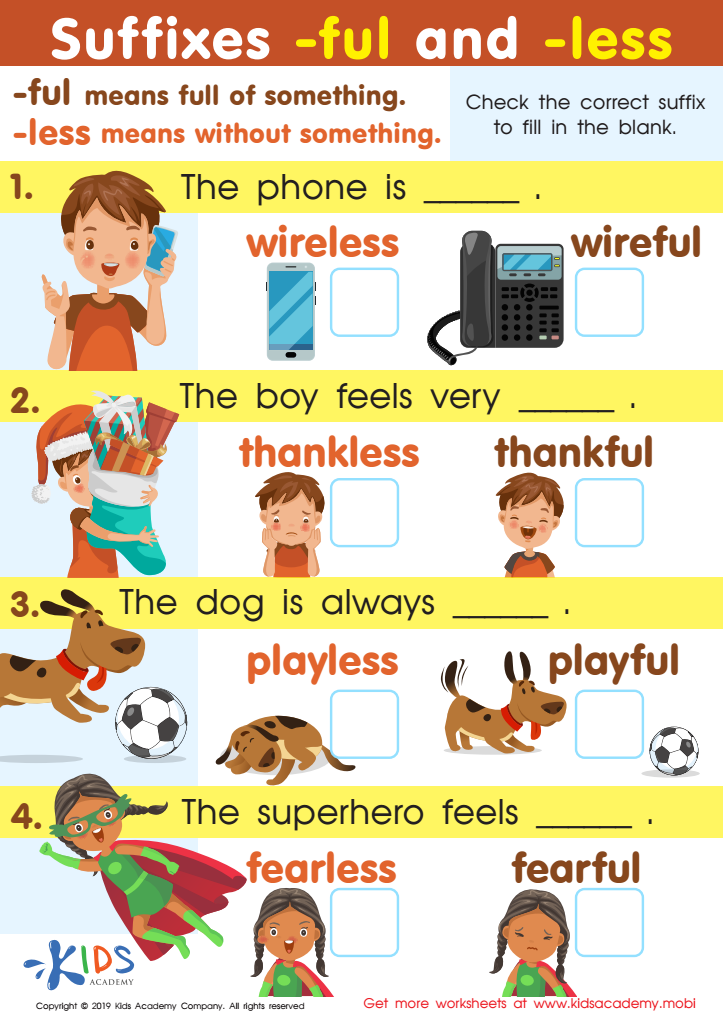

Suffixes –ful and –less Worksheet
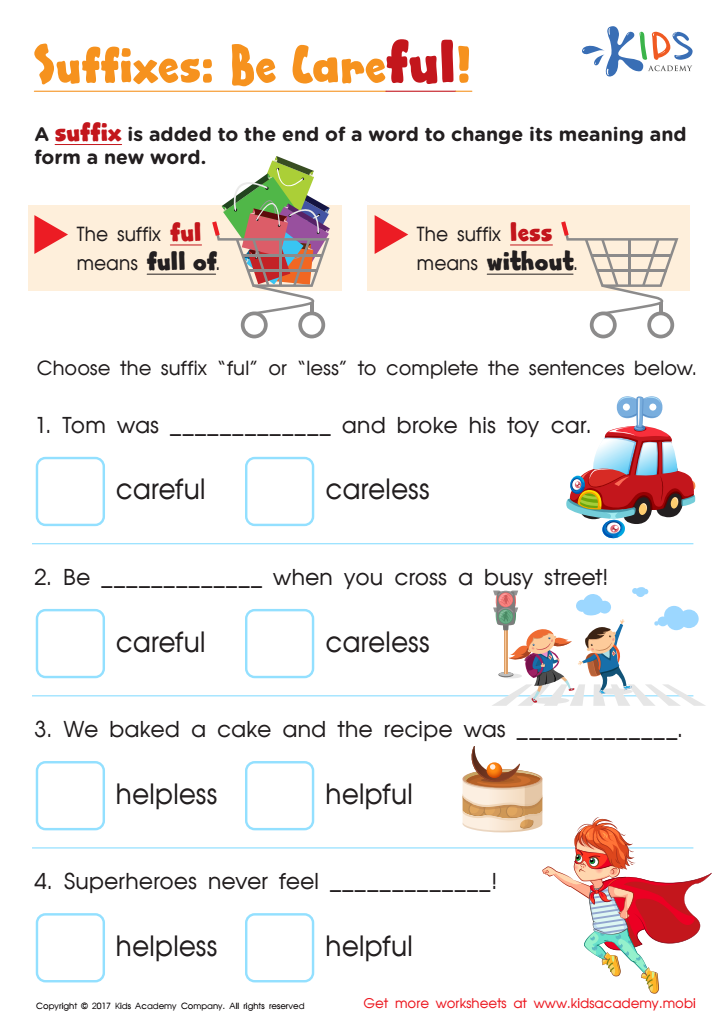

Suffixes Ful and Less Worksheet
Understanding suffixes is crucial for young children, ages 3-9, as it plays a significant role in developing literacy skills. Suffixes are word endings like "-ed," "-ing," or "-ly" that can change the meaning or grammatical function of a root word. When children grasp how suffixes work, they can more readily decode new words, enhancing their reading fluency and comprehension.
For example, knowing that adding "-ed" typically puts a verb in the past tense can help a child make sense of sentences like, "She jumped over the puddle." This kind of understanding also aids in spelling and improves vocabulary as children learn the meanings of different suffix combinations. For instance, the suffix "-ness" turns an adjective into a noun, such as "happy" to "happiness."
Parents and teachers should emphasize suffix learning to build a solid reading foundation. It empowers children to become confident readers, enriching their overall educational experience. Additionally, proficient reading skills set the stage for better performance across all subjects, contributing to a child's long-term academic success. Activities like word games and interactive reading can make learning suffixes fun and engaging for this age group, ensuring effective and enjoyable education.
 Assign to My Students
Assign to My Students




















